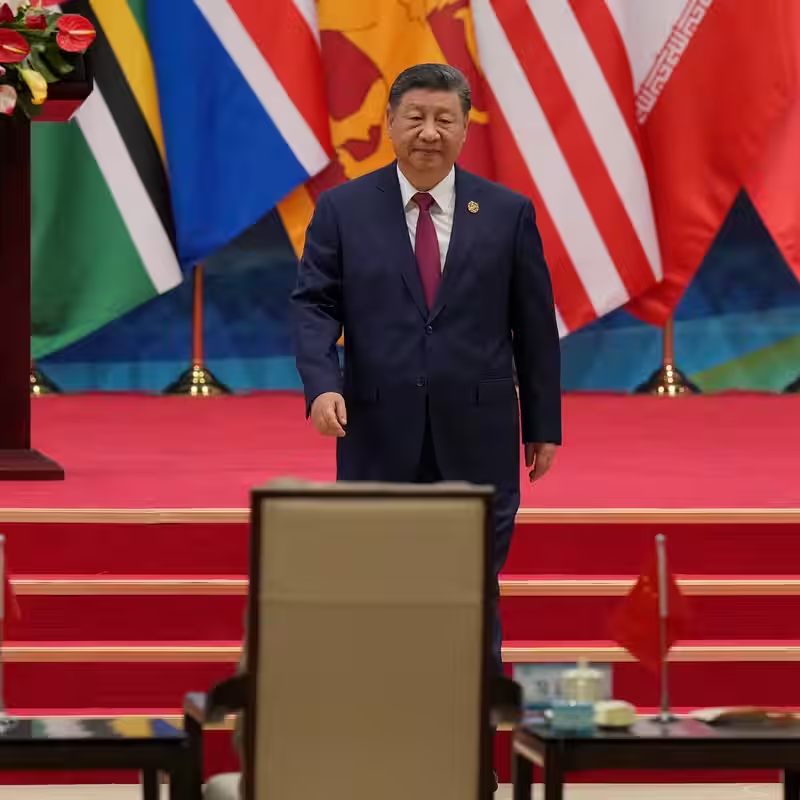How China’s Rare Earth Licensing System Mirrors U.S. Chip War Tactics
In a bold escalation of economic warfare, China has unveiled sweeping new restrictions on rare earth exports—critical minerals used in everything from fighter jets to electric vehicles and smartphones. The move, announced in October 2025, directly mimics the U.S. strategy of weaponizing global supply chains, turning Washington’s own playbook against it.
For years, the U.S. leveraged its dominance in semiconductor technology to restrict China’s access to advanced chips. Now, Beijing is retaliating with control over rare earth elements—a market it dominates with over 60% of global mining and nearly 90% of refining capacity.
What Are Rare Earths—and Why Do They Matter?
Rare earths aren’t actually rare, but they’re incredibly difficult to extract and process cleanly. They include 17 chemically similar metals like neodymium, dysprosium, and praseodymium—essential for:
- Permanent magnets in EV motors and wind turbines
- Precision-guided missiles and radar systems
- Smartphones, hard drives, and LED screens
Without them, modern defense and green tech industries grind to a halt.
China’s New Licensing System: A Global Power Play
Under the new rules, any company—even outside China—must obtain a license from Beijing to trade products containing Chinese-sourced rare earths. This extraterritorial reach echoes the U.S. “foreign direct product rule” used to block Huawei’s access to chips worldwide.
“China has really begun to figure out how to take a leaf from the U.S. playbook—and in a certain sense, play that game better,” said Henry Farrell, a political scientist at Johns Hopkins SAIS.
Timeline of Escalation
| Date | Event |
|---|---|
| April 2025 | China introduces initial rare earth licensing for auto/defense sectors after U.S. imposes 34% tariffs |
| Summer 2025 | Fragile truce: U.S. eases tariffs; China resumes mineral exports |
| Sept 29, 2025 | U.S. expands tech restrictions to subsidiaries of blacklisted firms |
| Oct 10, 2025 | China announces full rare earth licensing system—global scope |
U.S. Reaction: Panic, Threats, and Market Plunge
The Trump administration was caught off guard. Within days, President Trump threatened a 100% tariff on Chinese goods unless Beijing reversed course—and even floated banning cooking oil imports from China.
Stock markets tumbled. Ford Motor halted some EV production. Defense contractors scrambled to secure alternative supplies.
“Our expectation is that this never goes into effect,” said U.S. Trade Representative Jamieson Greer. But analysts aren’t so sure.
Why This Hurts More Than Chip Bans
While U.S. chip controls targeted only advanced semiconductors, China’s rare earth rules could impact all electronics and clean energy infrastructure. As Tufts professor Chris Miller noted: “The implications could be extraordinarily broad.”
Worse, the licensing process demands extensive corporate data—raising fears of industrial espionage and forcing companies to choose between U.S. security and Chinese supply.
Can the U.S. Break Free?
American efforts to rebuild rare earth capacity are underway—but slowly. Projects in California and Texas face environmental hurdles, high costs, and a decade-long timeline.
“If China gets around chip restrictions faster than the U.S. replaces rare earths, that’s a big problem,” warned Martin Chorzempa of the Peterson Institute.
The Delicate Balance
Yet China risks alienating global partners. “This threatens to undermine China’s credibility as a reliable trading nation,” said Oxford’s Yeling Tan.
Still, with Xi Jinping and Trump potentially meeting before year-end, both sides are posturing for maximum leverage. One thing is clear: the era of mutually assured supply chain dependence has entered a dangerous new phase.
Sources
The New York Times: “China’s Rare Earth Restrictions Aim to Beat U.S. at Its Own Game”




